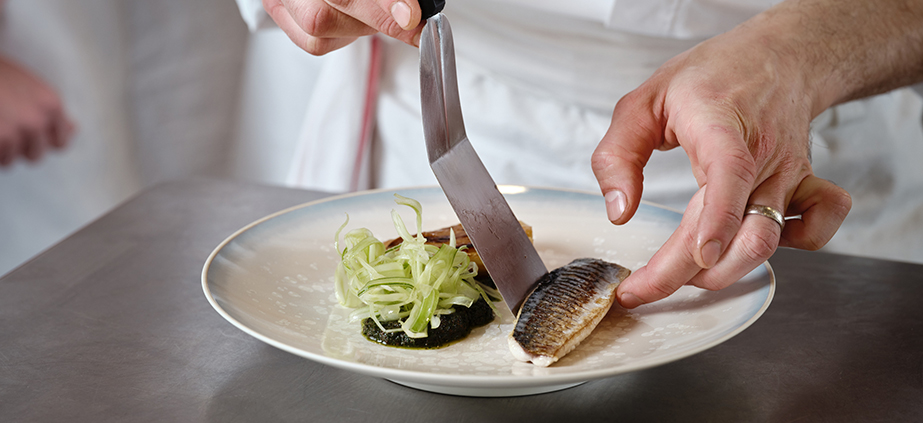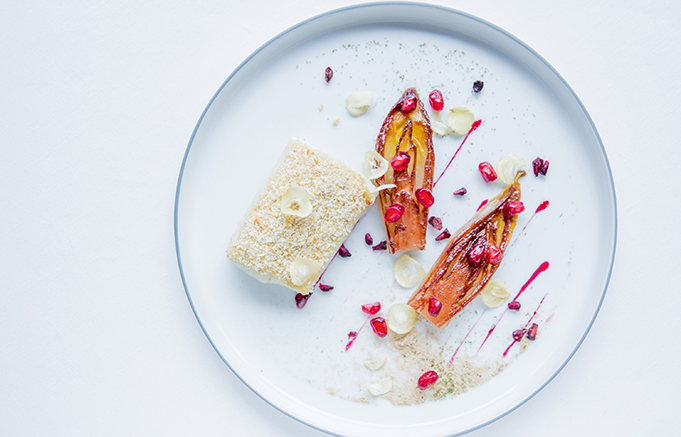How to Start a Catering Business

Running your own catering business can be fun and profitable. Here’s what you need to know if you want to succeed before you take the plunge.
Why Catering is a Good Business?
Catering can be a good way of turning your passion for food into a successful business and offers career switchers a great route into the culinary world.
You can run a catering business from home - full or part-time to suit your schedule and time of life - and start-up costs are relatively low, with the average investment being between US$10,000 and US$50,000, according to entrepreneur.com
Good returns are possible too, with well-run catering businesses earning up to US$80,000 a year and many turning over much more than that.
There’s plenty of room in the market for smaller operators as well. For example, the top 50 US catering companies generate less than 15% of the overall revenue in the catering industry.
What are the types of catering?
Catering is defined as providing food and drink for large numbers of people, mainly at various types of event and almost always at a site or building separate from the kitchen where the food is prepared.
There are many different types of catering services, but they can generally be split into four main categories:
- Wedding catering - the fine art of laying on the food and drink at wedding receptions.
- Corporate catering - providing food and drink, often including service, at corporate events such as product launches, financial results presentations, annual meetings, etc.
- Social event catering - looking after the food and drink side of birthday parties, housewarmings, retirements and other significant social events
- Concession catering - servicing the food and beverage needs of large sporting, music or other cultural events.
But that’s not all. As a caterer, you could easily be tasked with providing food and drink for more niche events such as supper clubs and private dining experiences.
And the beauty of catering is that it covers the provision of every cuisine in the world, so whether you specialize in barbeques, burritos or bolognese, you have a potential catering service venture in the making.
How can I start my catering business?
If you are considering launching your own catering business, there are many things to consider, which are outlined below.
But if you are really serious about it and do not have a background in food preparation or are switching careers from outside the hospitality industry, your best course of action would be to take a culinary arts degree or shorter program from a good culinary school.
This will not only give you a thorough grounding in high-end food preparation, it will also teach you how to run a business, deal with suppliers, manage employees, look after your finances and market your new venture.
Before you start ordering equipment and advertising your new catering service business, you need to carry out a range of preparatory tasks that will make all the difference to the success of your enterprise. These are:
Do your market research
It’s no good launching a catering service in your area that nobody wants, so before you quit your job and take the plunge, it’s worth doing extensive market research to make sure there are enough potential customers for your offering.
Find a market niche
Your chances of success will be much higher if you are offering something different from the competition. So as well as researching the market, you should consider what you can do that sets you apart from the crowd.
Create a menu
It may sound obvious, but among the first things you should do when launching a catering business is to create a menu. This is what clients will want to see before anything else, so make sure it’s clear, attractive and showcases your areas of expertise.
Create a catering business plan
Creating a business plan is essential if you need financing to launch your catering business, but it’s a good idea to develop one anyway because it will keep you focused and ensure you are not distracted by the day-to-day running of the operation.
Start building relationships with vendors
Running out of ingredients, equipment or other supplies your business needs can have a devastating effect on your start-up. That’s why it’s worthwhile getting to know your suppliers before you launch. The last thing you want is to have to cancel a booking because of shortages.
Hire and train your staff
If you are planning to operate as more than a one-man home-based food business, you will need to hire and train your employees. Since they will be representing you and your business to the outside world, it’s crucial you get this right.
Cost to start a catering business
How much money you will need to start a catering business will depend largely on what type of catering you are intending to provide. While the average investment is between US$10,000 and US$50,000, many fast food caterers launch with less than that at the outset.
Caterers aiming at the top end of the market generally need more start-up money due to higher overhead costs and the need for more specialist staff and the proper equipment.
How to Promote a Catering Business
The days of publicizing a catering business only through word of mouth are long gone, so you will need to take the time to devise a proper marketing plan.
This will need to take in traditional marketing strategies but also embrace new ways of growing your business such as digital marketing on social media platforms, SEO and paid content that chimes with your target market.
What makes catering business successful
There are many different things that go into making a catering business successful. These include business acumen, sound financial management, marketing prowess, a good understanding of your market and excellent relations with suppliers.
Also critical is a thorough understanding of the catering industry itself and the operating requirements, such as health department certification, insurance and liquor licenses. Then there’s your pricing strategy to consider.
Will your profit margin be sufficient to cover overhead expenses such as contract staff and allow you to invest? But the day-to-day success factors often boil down to your skills, hard work on a daily basis, excellent employees and, above all, good customers.
And the two factors most likely to ensure customer retention are your cooking and your customer service. Get those two right and clients will keep coming back.
What qualifications do you need to start a catering business

The beauty of startup businesses in the catering industry is that you don’t need any specific qualifications to manage one successfully. As long as you have the required business licenses and insurance, you’re good to go.
But even if your food rivals that you could expect in a commercial kitchen, there are many pitfalls a catering business owner needs to avoid if they are to be successful in the long run.
Those who have taken the time to learn from the experts are generally the ones who make fewer mistakes and enjoy more fruitful careers. Despite many new techniques being available to caterers, one of the most effective ways of building a business is through recommendations from client to client.
The only way you will develop that kind of reputation is by providing truly exceptional food and service that delights and amazes your customers. And the best way of learning how to deliver that is by studying some kind of culinary arts program.
Specialist courses will train you in all the fundamental techniques of classical cuisine, teach you the latest culinary trends, develop your kitchen skills and equip you with the business acumen you will need to run a successful enterprise.
If you truly want to succeed, you should look for a culinary school with a great reputation. And where better to study the culinary arts than in France, the birthplace of classical cuisine? Based in Paris and Yssingeaux, Ecole Ducasse offers perfect programs for budding caterers at every level.
Bachelor’s degree programs
If you are fresh out of high school and looking for a career in the food industry, the three-year Bachelor of Culinary Arts at Ecole Ducasse opens up a world of options.
With three internships included to hone your skills, expert faculty and outstanding facilities, there is no better place to learn all you need to know to become a successful catering entrepreneur.
Specialist culinary courses
Career switchers and those who want to turn their hobby into a successful catering business should consider programs dedicated to developing culinary skills to an exceptional standard.
Ecole Ducasse offers two shorter culinary arts programs that are ideal for people looking to acquire the skills they need to launch catering businesses.
The nine-week Culinary Arts Essentials program, which includes an internship, is perfect for those looking to elevate their cooking to a higher level and offers entrepreneurs a great insight into how to run a catering business. For career changers without a background in the culinary or hospitality industry, Ecole Ducasse offers the nine-month Diploma in Culinary Arts.
This combines practical culinary arts instruction with teaching modules dedicated to managerial and entrepreneurial skills.
CULINARY ARTS DIPLOMA
Study culinary arts in the birthplace of cuisine If you want to start a successful catering business, a culinary arts program from Ecole Ducasse is the perfect launchpad


